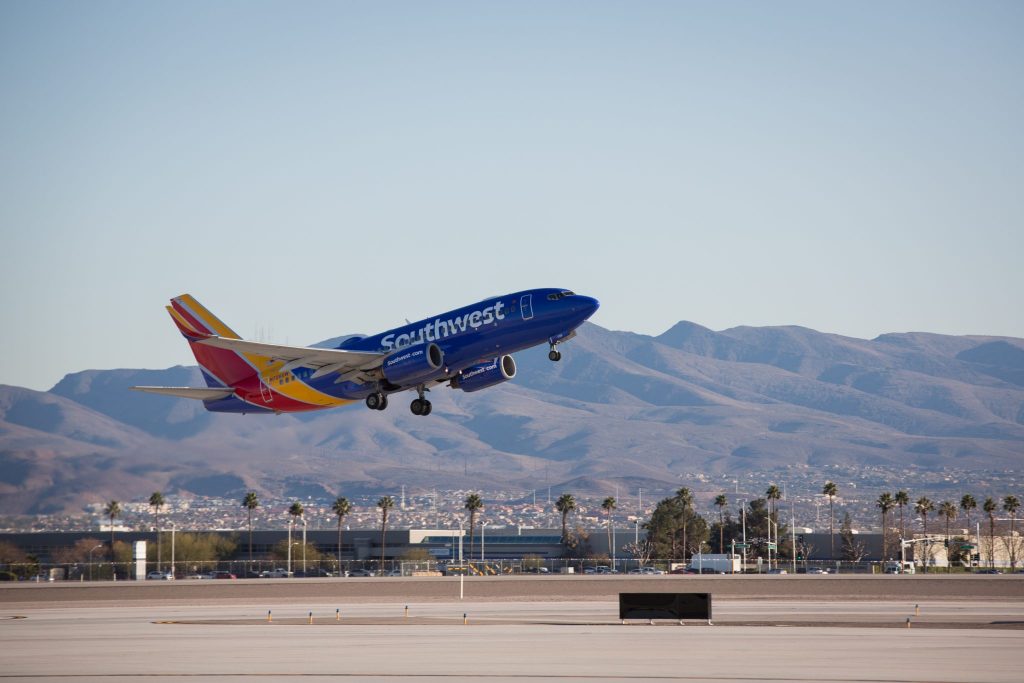Skift Take
A trio of airlines have overhauled their corporate platforms in the past seven days. The focus is on self-service, and managing perks as well as discounts, which could help them gain more direct business from smaller companies that are spearheading the recovery.
Southwest Airlines’ launch of a new travel portal on Monday, Southwest Business Assist, means it now becomes the third carrier within a week to overhaul its technology, in a bid to give more control to corporate clients, potentially winning it more direct business.
Last week United Airlines and Delta Air Lines made similar moves, giving more control to travel managers. They’re also going to want pull in more small and medium-sized business customers, widely regarded as the fastest-growing market to emerge from the pandemic — but it may be United that has the upper hand.
It’s no coincidence the three major U.S.airlines made these announcements this past week, just as the Global Business Travel Association Convention gets into full swing in San Diego. Its organizer claims 1,000 travel buyers from more than 500 companies are attending over Aug. 14-17.
What Southwest and the other carriers will be hoping to do over the coming days at this event is make the case to smaller companies that maybe they don’t need a corporate travel agency, one expert has argued, when they can simply get everything from their revamped tech platforms. So-called duty of care and Sustainability reporting are being heavily promoted.
In the One Place
Southwest Business Assist is effectively a self-service tool that lets corporate travel buyers, as well as travel management companies, better manage their business trips “using unique dashboards, reports, automated processing of contractual benefits, receiving or requesting customer service, and much more.”
It launches August 24 and new features include travel funds management, more insight to contractual benefits and account performance, and expanded sustainability reporting. Later on it plans to add self-service duty of care reporting, a staple of most travel agency platforms today. Last month the airline ditched voucher expiry dates dates.
One industry insider at the Global Business Travel Association Convention told Skift these airline platform revamps were desgined to target smaller clients in the wake of larger enterprises still not fully returning to travel.
“It’s nothing earth shattering, but it is materialistic,” they said.
However, Dave Harvey, vice president of Southwest Business, played down the possible land grab for more direct business. “It’s not a booking channel, it’s really just a management channel, one-stop shopping, where it’s a single source of the truth,” he said. “This is actually a huge win for travel management companies … it makes their mid-office and back-office that much easier.”
Delta Air Lines has similarly gone for a “one stop shop” approach by rebranding and bringing all of its business travel tools, products and services into a new platform called Delta Business.
New digital self-service abilities to issue digital Delta Sky Club passes and complimentary Medallion Status also come into play, plus a sustainability dashboard for customers to track carbon emissions, progress and top travel markets based on their emissions footprint.
“Delta Business highlights the value we provide to our customers, and it creates streamlined transparency into all the benefits our customers receive,” said Bob Somers, senior vice president for global sales at Delta.
The Vacationing Angle
There’s a focus on giving more control over loyalty perks to business customers. But United may have the upper hand with its news United for Business Blueprint platform, which launches later this year.
The airline said it wants to move the conversation away from a discounted airfare being the only option available during the contracting process, and it will help corporate customers design their travel programs.
“The needs of our customers are changing, and it’s the right time to move beyond the one-size-fits-all contracting model that has become standard across the industry,” said Doreen Burse, senior vice president of worldwide sales for United.
However, the industry expert, familiar with the platform, called out United Blueprint’s ability to include incentives such as discounts on leisure travel for employees, which represents that continued trend of blending professional life with personal.
Other airlines would be wise to follow suit, they cautioned, with the ability to offer “shadow” benefits key.
United will also launch a new website later this year designed to make it easier for companies who book business travel on united.com or the United app to enrol in and manage their travel program. It will also help them rebook and exchange travel, and view and use future flight credits.
New customizable booking and payment settings will give travel administrators more choice in the payment options and spending guidelines they set for their travelers, and the airline said the website was designed with small businesses in mind, but will also bring “great value to larger organizations that book their business travel through united.com or the United app.”
The Daily Newsletter
Our daily coverage of the global travel industry. Written by editors and analysts from across Skift’s brands.
Have a confidential tip for Skift? Get in touch
Tags: airlines, business travel, corporate travel, delta air lines, gbta, loyalty, san diego, southwest airlines, travel management, united airlines
Photo credit: Southwest Business Assist was launched at the Global Business Travel Association Convention on Monday. Stephen M. Keller / Southwest Airlines
